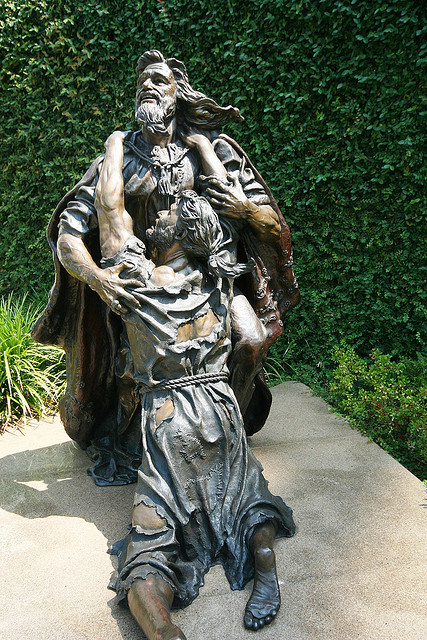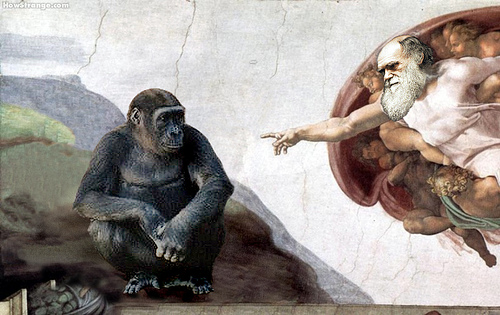For a plant to grow it must be in an enabling environment – a seed needs to be planted in good soil, have access to sunshine and be watered regularly to enable it grow into the plant it is meant to be. These are the basic conditions required for plant growth and anything else is done to make the process easier or more productive. The parable of the sower in the book of Matthew [1]Matthew 13:1-23 is based on this same principle.

The parable talks about a sower who went out to sow and the seed fell in different places. Some on the way side which the birds ate up, some on stony places which were unable to sprout because there was no depth of earth, some among thorns that chocked them and some on good ground which brought forth plenty fruit. Jesus later granted insight into the meaning of the parable and likened the seed received by the wayside to one that hears the word of God, does not understand it and the wicked one comes to steal it away. The seed received in the stony place is one who hears the word and receives it with joy, but because he has no root he cannot endure trial and tribulation. The seed among thorns is one who receives the word but because of the cares of the world and deceitfulness of riches, is unable to bear fruit. The seed in good ground is one who hears the word, receives it, understands it and bears much fruit.
The simpler interpretation of the parable is that several conditions affect the hearer’s capacity to receive and ultimately develop from the word taught. Here the seed is the word of God, the sower is the one who spreads the word and the various ‘grounds’ represent different hearts and different people.
In the case of one who has received the seed – the word of God – and believes, the ground is the church or his/her place of religious worship. Not the bad friends, clubhouses, beer parlours or other unseemly places or influences.
The popular interpretation of the parable places the responsibility of an individual’s receptiveness at the feet of the individual in question. Basically, we say that the capacity of the word of God to make an impact on a life depends largely on whether the individual will receive it or can handle it. In many ways that is correct and in his interpretation to the disciples, Jesus also laid emphasis on the heart of the individual. But this was only to some extent. You see, the parable talks about four types of people and we can easily identify the first set of people as those who do not understand and as such are unable to receive the word. The second group although more receptive, even joyful, are not as eager to remain loyal to the word when trying times come their way. These two groups of people can be said to be those who make conscious decisions to reject the words of Christ, whether initially or after events of life persuade them to do so.
Describing the third group of people is slightly trickier and much more interesting. This is because, these people hear the word and receive it, yet they are described as those among thorns; the thorns representing the cares of the world and the deceitfulness of riches. In their case, the seed of the word is not rejected, it does not die neither is it snatched away; it is very much accepted but just becomes unfruitful.
What then is this fruit that the word of God is designed to produce in us? Well, if like can only reproduce like and Jesus is the vine and we the branches, the fruit we are to bear are things, actions or character traits that are just like Christ’s. We are to maintain a close relationship with God; be compassionate and help the suffering, needy and oppressed; and, when called upon to help, we help, even when it is not convenient for us. This fruit was listed by Apostle Paul as love, joy, peace, longsuffering, gentleness, goodness, faith, meekness and temperance. [2]Galatians 5:22-23 And in his letter to the Colossians, Paul further discussed how these fruits should manifest themselves in daily living. In verse ten of chapter three he alludes to the Christian putting on a new man after the image of God, the one who created Jesus, and in the following verses he encourages the people of Colossae to put off “anger, wrath, malice, blasphemy, filthy communication and lies” and instead to put on;
“…as the elect of God, holy and beloved, bowels of mercies, kindness, humbleness of mind, meekness, longsuffering; Forbearing one another, and forgiving one another, if any man have a quarrel against any: even as Christ forgave you, so also do ye. And above all these things put on charity, which is the bond of perfectness.”
Ultimately, the purpose of receiving the seed is that we may become like Christ, in character and in deed, and the fruit we are called to bear is to manifest Christ’s traits, not just in an abiding relationship with the Father but also in our character and our interaction with the people and world in which we live.
There are churches with large growth in members but no fruitfulness or Christ-likeness in those same members…
So let’s return to the third group of people and their inability to bear fruit. The dilemma of this group demonstrates that the capacity of the word of God to make an impact on a life also depends on the environment in which that individual is.
As I type this, I mentally visualise holy heads nodding in agreement and saying, “What does light have to do with darkness,” “Believers ought not to interact with unbelievers,” and “Evil communication corrupts good manners.” But unfortunately that is not where I am going. As touched on earlier, the environment in which the ‘ground’ exists is that which is meant to provide it with what it needs in order to nourish the seed, helping it grow and become fruitful. In the case of one who has received the seed – the word of God – and believes, this is the church or his or her place of religious worship. Not the bad friends, clubhouses, beer parlours or other unseemly places or influences.
To fully understand my perspective, let’s juxtapose the third and fourth examples of ‘grounds’ from the parable. Both hearts receive the seed but are in different environments. Both environments promote growth but only one enables fruitfulness, which is the true test of the viability of any plant. What this means is that there are churches with large growth in members but no fruitfulness or Christ-likeness in those same members and there are some churches that enjoy both. Is it possible for one to be in the church and still remain unfruitful, you might ask? The simple answer is yes. We see Jesus dealing with this same issue in his discussion on the vine, the vinedresser and the fruitful & unfruitful branches [3]John 15:1-2. It is very possible for a person to have accepted the seed of the teaching of Christ, be a branch in his vine, be an ardent churchgoer and still be unfruitful.
Fruitfulness largely depends on the church environment. This means that the church has a very important role in helping the seed of the knowledge of Christ grow from being just a seed, into becoming a fruit bearing plant in the lives of those who worship within its walls. Yet, the parable attributes this problem to cares of the world and the deceitfulness of riches. So if we have established that the church is the environment in which the ‘ground’ resides, it would mean that many-a-church is filled with or better still, concerned with ‘the cares of the world and the deceitfulness of riches’ – things that do not facilitate the growth of the seed or the much desired fruit, nor does it benefit those in its care. Ouch! See, Jesus doesn’t say that the seed dies like that sown on stony ground; it just never gets enough sustenance to ever produce fruit.
The church needs to prioritize spiritual growth and development over that which chokes the spirit and renders it unfruitful. …We, the church, need to go back to the basics of what following Jesus and making disciples for him really means – being Christ-like.
Perhaps, what is most amazing is how the words of this parable ring true in many modern day Christian churches. We have become too preoccupied with the ‘world and its cares’ and we are no longer interested in making the church environment one that encourages spiritual growth in the individual. Anyone who has been blessed with the good fortune of sitting through the numerous broadcasts on any Christian television channel would agree with me on this. If it’s not about sowing a seed towards your first, second or third million, it’s about destroying the enemies that will not allow you to become this rich millionaire. The church seems to have forgotten the words of Christ admonishing that we “take heed and beware of covetousness: for a man’s life consists not in the abundance of the things which he possesses” [4]Luke 12:15 because “no one can serve two masters, for you will be devoted to one and abandon the other… you cannot serve God and wealth.” [5]Matthew 6:24 The result of our preoccupation with wealth, its creation, sustenance and multiplication, is that we have abandoned the purpose of our establishment. We have lost our love for God and his people and have become an environment fit only to deactivate the capacity of God’s word to bring fruitfulness and development to the lives of many.
Like a greenhouse built and equipped with all that the plants within it require to grow, develop and thrive, the church needs to prioritize spiritual growth and development over that which chokes the spirit and renders it unfruitful. Let us build churches like the fourth ‘ground’ in Jesus’ parable; where the seed of the word of God can take root, grow and produce fruit that looks, tastes and feels just like its source – Jesus. As he ascended, Jesus told his disciples to teach all men that which he, Jesus, had taught them – the summary of which is to love the Lord thy God with all thy heart, and with all thy soul and with all thy mind; and love your neighbour as yourself [6]Matthew 22:37-40 – doing to men what you would like them to do unto you. [7]Luke 6:31
We, the church, need to go back to the basics of what following Jesus and making disciples for him really means – being Christ-like.


